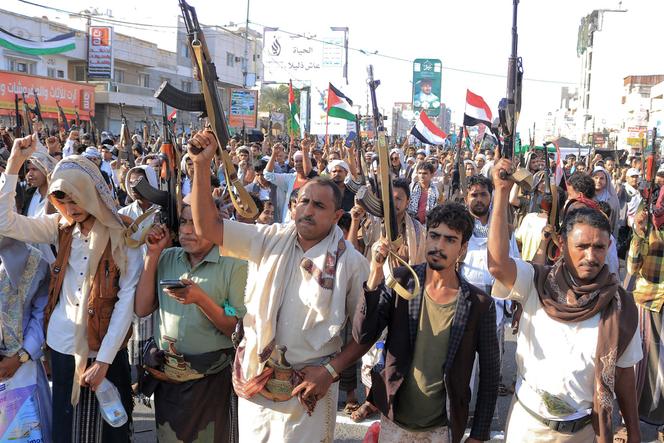


Yemen's Iran-backed Houthis said on Friday, January 12, that US and British interests were "legitimate targets" after the Western allies launched deadly strikes following weeks of disruptive rebel attacks on Red Sea shipping. The barrage of strikes early on Friday against the Houthis, who say they are acting in solidarity with Gaza, stoked fears of the Israel-Hamas war spreading across the region.
Violence involving Iran-aligned groups in Yemen, Lebanon, Iraq and Syria has surged since the war in Gaza began in early October. Britain, the United States and eight allies said the strikes aimed to "de-escalate tensions," but Iran and other governments condemned the Western action or warned that unrest could worsen.
The UN Security Council was due to hold an emergency meeting on the strikes on Friday, days after adopting a resolution demanding the Houthis immediately stop their attacks on ships. Oil prices rose four percent on fears of an escalation before falling back. The Houthis have intensified attacks on what they deem Israeli-linked shipping in the Red Sea – through which 12% of global maritime trade normally passes – since Hamas's unprecedented attack on Israel triggered the Gaza war on October 7.
The rebels have controlled much of Yemen since a civil war erupted in 2014 and are part of an Iran-backed "axis of resistance" against Israel and its allies. "All American-British interests have become legitimate targets" for the Houthis following the strikes, the rebels' Supreme Political Council said. Hussein al-Ezzi, the rebels' deputy foreign minister, said the United States and Britain must "prepare to pay a heavy price".
The Houthis fired "at least one" anti-ship ballistic missile in retaliation on Friday that caused no damage, according to US General Douglas Sims.
US President Joe Biden called the strikes a successful "defensive action" after the "unprecedented" Red Sea attacks, and said he would act again if the Houthis continued their "outrageous behavior".
British Prime Minister Rishi Sunak said the Houthis' breach of international law warranted the "strong signal", with his government publishing its legal position justifying the strikes as lawful and "proportionate".
Nasser Kanani, spokesman for Iran's foreign ministry, said the Western strikes will fuel "insecurity and instability in the region" while "diverting" attention from Gaza. Hamas said it will hold Britain and the United States "responsible for the repercussions on regional security".
But the White House said the United States did not seek conflict with Iran, with National Security Council spokesman John Kirby telling MSNBC there was "no reason" for an escalation.
Hundreds of thousands of people, some carrying Kalashnikov assault rifles, gathered in Yemen's capital Sanaa in protest, many waving Yemeni and Palestinian flags and holding portraits of Huthi leader Abdulmalik al-Huthi, an AFP journalist reported. "Death to America, death to Israel," they chanted.
In Tehran, hundreds rallied against the United States, Britain and Israel, burning the three countries' flags outside the UK embassy while voicing support for Gazans and Yemenis, an AFP reporter saw.
